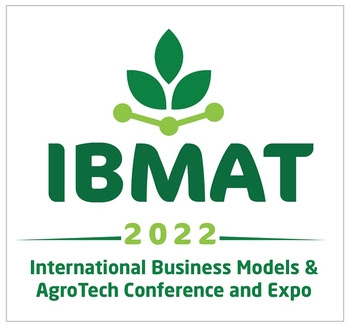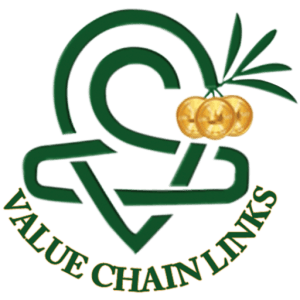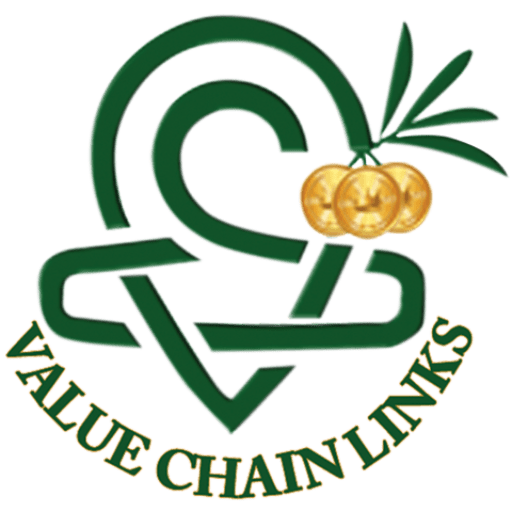WHY DOES EVERYBODY FIND THIS CONFERENCE APPEALING AND RUSH TO JOIN?

BY DR.NIMROD
TO MY MUSLIM FRIENDS, RAMADAN MUBARAK, AND HAPPY PASSOVER TO THE JEWS.
As an entrepreneur pushing the boundaries of “the possible,” I am used to working in an environment of uncertainty. It means that I got used to getting informed of things that are not working as expected.
A year ago, I volunteered to be the Director of the International Business Models & AgroTech Conference and Expo (IBMAT). Now I arrived in Rwanda for site inspection and to study the level of cooperation we can expect from the local authorities and other stakeholders.
When I landed in Kigali at 00:45 for two and a half working days, most of them in meetings with government officials, my expectations were low.
At that time, I did not yet know that government officials in Rwanda started working early, and if necessary, they would wait for us until late.
Thanks to that, when I got on the plane to take me back to Israel, I noted a higher level of performance/achievement than initially planned.
In Rwanda, things didn’t work as I expected, they worked far better, and I was glad to be wrong.
WHY RWANDA?
Rwanda positioned itself as a conference hub. Thanks to that, the IBMAT team chose to have its first conference in Rwanda.
To ensure “a successful conference,” we set expectations with all parties and stakeholders, including –
Private sector: join the conference for improved future business results.
Academy: join the conference to solve a practical issue of ineffective current business models for use with smallholders.
Farmers: join the conference and be part of the discussion about your future.
Governments: join the conference to improve your understanding of the reasons holding back your agro-sector and how you can overcome them.
The Hosting Country: join the conference to attract delegates to initiate local activity by offering delegates attractive business opportunities.
NGOs, foreign organizations, and others: join the conference because smallholders’ challenges and problems impact the global security, safety, economy, environment, health, etc.
Only two and a half working days in Rwanda enabled me to meet many representatives of stakeholders in the agro sector. We try hard to meet as many because we want to hear everybody’s voice.
Still, much of the time I dedicated to meetings with government officials. This is to ensure they maximize Rwanda’s business potential from the event.
Typically, I expect very little from government officials. I came with the same set of expectations to those meetings too.
But then I was overwhelmed by their patience, genuine interest, and humbleness. In every meeting, they would share their side of the story. After that, they would listen with high interest while I described the content and uniqueness of the conference and finally asked lots of questions.
They were primarily interested to understand the conference’s essence and uniqueness and how Rwanda would benefit from it.
The same questions were repeated while meeting with representatives of the other groups, i.e., private sector, academy, representatives of farmers, NGOs, and others.
Since most people didn’t know or hear before we met the term “business models,” I held my expectations low.
It made my amazement even greater when meeting after meeting, I heard at the end, “Wow, that’s interesting! Of course, we want to participate, and we would help make it a success.” I was stunned.
WHY CAN’T YOU?
One statement that repeated itself; “Rwanda is a small country. We don’t have enough land to support a successful agro-industry.”
This is when I would ask them to Google the land area of Rwanda (26,338 km2) and that of Israel (22,145 km2).
Then I would say,
“Not only that Israel is smaller than Rwanda, but two-thirds of its land is also a desert (less than 100 mm rain per year).
Like all the founding members of my Kibbutz, my mother escaped the Nazis and arrived in Israel as an orphan with nothing other than the cloth on her body.
After a horrible independence war, together with a few brothers in arms, they founded a Kibbutz on the top of a bare rocky hill with no electricity or water.
For decades ≈80% of the Kibbutz’s income was dependent on agriculture. A year ago, she passed away in a highly prosperous community.
If she, her friends, Israel did it under such unfavorable conditions, why can’t you?”
This week Rwanda marks the 28th commemoration of the genocide against the Tutsi that claimed over 500 thousand lives in 100 days. As the son of a holocaust survivor, I share my feelings and sympathy with the victims’ families and the people of Rwanda. In the Kinyarwanda language, I wish you, Twibuke twiyubaka (Remember and build).
WHY BUSINESS MODELS?
The two most common questions I was asked in the past week were:
“What is the meaning of Business Models?”, and
“Why is there a need for a conference on Business Models?”
Let’s address those questions one by one. I hope this discussion will move you into action and register for the conference.
WHAT IS A BUSINESS MODEL?
According to Wikipedia –
“A business model describes how an organization creates, delivers, and captures value, in economic, social, cultural or other contexts. The process of business model construction and modification is also called business model innovation and forms a part of business strategy.”
The goal of organizations is to create/capture value. Hence, it is worth noting that the word Technology is not mentioned in the above definition and context of creating value.
It means that Technology is not equal to Creating/Delivering/Capturing Value.
In short, Technology ≠ Value.
Yet, when we think of Creating/Delivering/Capturing Value, we always focus on Technology.
Is it possible that we are wrong by overfocusing on technologies?
How does this relate to agriculture? Maybe it is time to do “business model innovation” in the agro-sector of emerging economies and think of how we Create/Deliver/Capture Value also in non-technological ways?
WHY DO WE NEED A CONFERENCE ON BUSINESS MODELS IN AGRICULTURE?
The IBMAT would focus on business models in agriculture in emerging economies for smallholders.
Why?
Because that sector, which supports two billion people, is the key to energizing the economies of the emerging economies.
Because currently, the value created and delivered by smallholders of the agro-sector in emerging economies is meager.
In emerging economies, the agro value chain stakeholders, i.e., farmers, suppliers of goods and services, traders, governments, etc., utilize only a minimal percentage of the sector’s potential value. This means that those countries could thrive if they would increase smallholders’ value.
Because farmers, the private sector, governments, academics, and other organizations, in emerging economies are not satisfied with the current value, they create. They all want to change the situation.
Because we are sure, the agro-sector can be improved by much. That is one of the goals of the IMBAT sessions – to use crowd wisdom to discuss, with an open mind, how we should do it.
Because for decades, endless conferences focusing on technology did not bring the desired change; smallholders’ life improvement.
Because even when there are lots of funds, i.e., AGRA, the reality remains unchanged.
Because many state-of-the-art technological companies are frustrated after failing countless attempts to enter emerging economies.
Because history teaches us of business models that were very effective in delivering rapid changes and high value in the pre-technological era (e.g., Kibbutz and Moshav in Israel).
Because my personal experience taught me that the most outstanding value we created in our Kibbutz farm was NOT the result of breaking through technology.
Because when looking at other than agriculture industries, we see that the most successful companies in the world are flourishing thanks to “business model innovation,” and not thanks to being “technological leaders,” e.g., Facebook, Amazon, Google, Ikea, Tesla, etc.
WHAT WILL WE NOT DO DURING IBMAT SESSIONS?
In IBMAT, we will not talk about how excellent is your or others’ technology and service. Because being in IBMAT already means that you are outstanding.
We will not focus on the lack of technologies and funding.
We will not say “everything is good” when we know it is not.
We will not blame anybody.
We will not be depressed.

THE IBMAT FOCUSED ATTITUDE
We will come with a positive attitude to create a better future for the stakeholders of the agro-sector in emerging markets.
We will say aloud, “We know and are sure that a bright future is possible and near, but we are not sure of the business model to get us there.”
We know that the first thing to do for a better future is accepting and agreeing that the present is unacceptable. Therefore, WE MUST BRING A CHANGE.
We know that we want long-lasting prosperity based on continuous sustainable professional results.
We know that we don’t know yet, in detail, how to transfer smallholders from poverty to prosperity.
BUT –
We know that when smallholders, which constitute about 95% of global farmers, would do better, the entire value chain would improve, and the global economy would skyrocket.
We know that all global achievements came from international cooperation in the face of global challenges and that bringing economic prosperity to emerging economies is a “global challenge.”
We know that we need the support of all stakeholders and experts in our country, continent, and the world to end that “poverty pandemic” deep-rooted in smallholders’ livelihood.
We know that achieving change and the prosperity that follows would require the collaboration of all value chain stakeholders.
We know that the future is in our hands and not in others.
We know that no magic would change Poverty to Prosperity.
We know we would need to do things differently if we wish for a different (better) future.
We know that future business models would require redesigning and tailoring the agro-sector ecosystem.
We know that we need to be cooperative, open, and innovative.
We know that for future generations, we can’t lose this battle.
We have no intentions of letting arrogance and over-confidence dictate our future.
We know that change will take time, but we can see results in one to two years if we start today and when correctly done.
We acknowledge the above and more. Hence, we are ready to share our good and bad experiences, listen to others, discuss, agree, and disagree with mutual respect. We are prepared for this and more to improve our business results.
IBMAT AIMS HIGH
I wish you and hope that already during the conference; you will close some profitable deals that will benefit your organization.
This would be an excellent “tactical” achievement but not a strategic one. It wouldn’t solve the strategic problem of your organization and those related to the agro-sector in emerging economies.
Hence, the main aim of the IBMAT is to initiate a process to help you create YOUR winning business model.
An improved Business model would help you improve your market entrance strategy and work in harmony with other stakeholders. This way, IBMAT would bring prosperity.
“The process of business model construction and modification is also called business model innovation and forms a part of business strategy.” Wikipedia.
The IBMAT conference and Expo is the first conference and the fast track for the private sector, farmers, governments, and others, to initiate and apply innovative business models.
From that perspective, the IBMAT Conference and Expo would help participants build a more successful business strategy tailor-made for their needs.
My practical experience and in-field activity proved that I could only develop and perfect the Dream Valley business model after thoroughly understanding the value chain stakeholders.
Hence, I believe that stakeholders should understand each other far better to achieve their goals. Historical change occurs as mutual understanding and trust increase.
The IBMAT Conference and Expo aim for practical, measurable RESULTS, not TITLES.
We need the governments’ support and activity for exceptional rapid positive results.
It is the responsibility of governments to create the supporting ecosystem that would enable the implementation of novel business models to benefit the entire agro sector.
A positive sign of that would be seeing a flood of private companies that will start to work closely with smallholders.
Without a solid and prosperous private sector, there would be no sustainable economic development and smallholders’ prosperity.
So in the past week, I have worked hard with the Rwanda government to see how the IBMAT conference can serve as a starting point for entering Rwanda and Africa. I intend to continue that effort until the conference and past it.
Private sector participants, we know the agro sector’s future depends on you.
The IBMAT Conference and Expo is your tool to address your issues and learn from collogues and the other stakeholders how we can improve our business results.
When everybody takes part and contributes from their experience, success, and failures, we get to learn and together step forward. For this, you need to keep your mind open.

| YOUR BUSINESS SUCCESS IS OUR FOCUSIBMAT and Rwandan officials are working hard to take good care of the conference guests. We will do what it takes to enable you “soft landing in Africa.”All the above is in addition to continuous interactions, B2B meetings, social events, and… fun. Rwanda is lovely; consider making this event part of a family vacation.I will understand if you decide not to attend the conference because of skepticism. But to help overcome the natural aversion to something new, we have lowered the participation price by 30% to 60% relative to similar conferences.Israel is my home as it is a global leader in agriculture. Therefore, it was imperative to have an Israeli mission in the event.I am proud that H.E. Dr. Ron Adam, the Israeli Ambassador to Rwanda, confirmed his participation and sponsorship and the Israeli Export Institute.Do you want to meet them? Join the conference.We are currently discussing with other national delegations, including from outside Africa.Promoting agriculture and smallholders is a national task not limited to African countries. IBMAT is an international conference, and we will be delighted for participants and delegations from worldwide!Don’t wait; the number of participants, speakers, and exhibition booths at the conference is limited. To register for the International Business Models & AgroTech Conference and Expo https://www.ibmat.org/.For questions, clarifications, and organizing national missions, contact me at nisraely@biofeed.co.il or Isaac Kagara at isaackagara@gmail.com. |
TAKEAWAYS
» THE FUTURE OF SMALLHOLDERS in emerging economies will be better.
» CURRENT APPROACHES relying on technologies and funds to bring the change have failed.
» THE MOST SUCCESSFUL companies have become so thanks to an innovative business model supported by enabling technology.
» THE IBMAT CONFERENCE AND EXPO is business-oriented, suggesting to stop doing more-of-the-same, and instead; redesign the business models and tailor them to the needs of smallholders in emerging economies.

